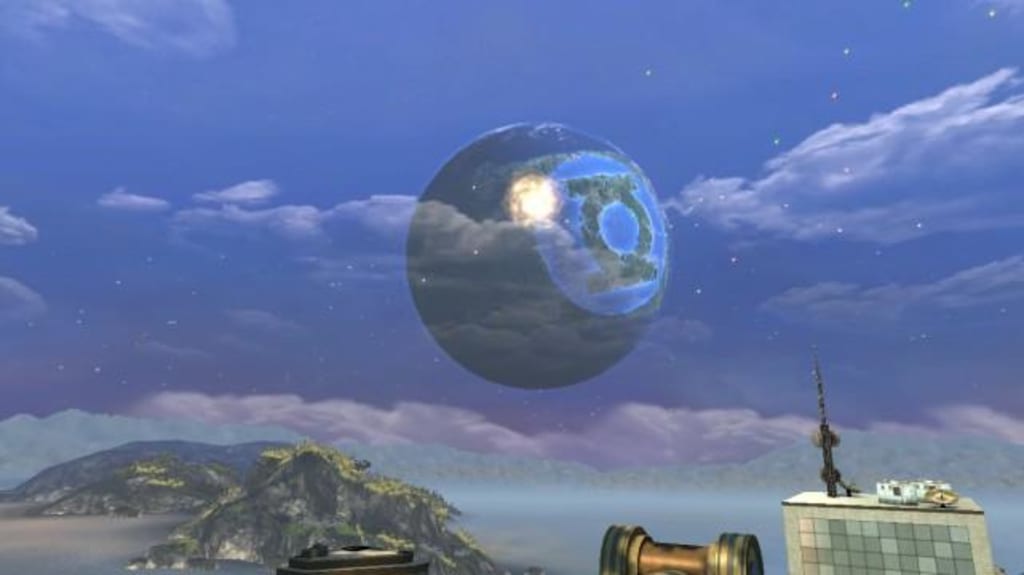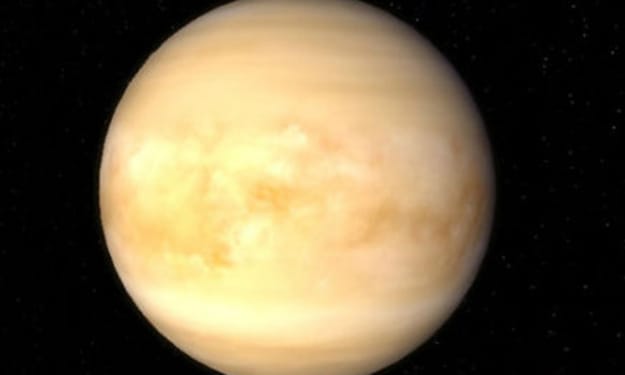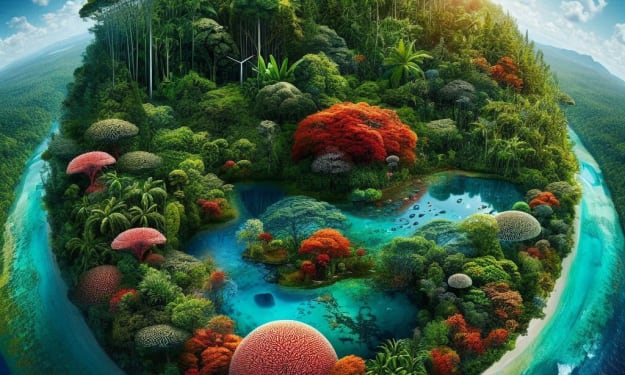Is it possible that the earth is a living organism, and humans live on the earth like bacteria?
Is it possible that the earth is a living organism?

We know that no matter how clean a person is, there will be trillions of bacteria living on them. Compared with the 1.7-meter big human being, they are too small. The diameter is generally between 0.5-5 microns, which is smaller than us. Hundreds of thousands of times, we simply cannot perceive their existence.
However, more and more research is now showing that the bacteria that live on us rely on the "substance" we provide to build unique ecosystems in each person, which is a bit like what we do when we live on Earth Same.
So the question is, will the relationship between bacteria and us be the same as our relationship with the earth? We are the "parasites" of the earth, and the earth has life of its own.
It is estimated that many people have similar ideas, so such things often appear in comics and science fiction.
For example, in the DC comics "Green Lantern", a Green Lantern named Mogo (Mogo) is a living planet. The comics also give it a gender (female), and it can change its own planet's climate and vegetation at will.
You can think of Mogo as a behemoth that also gave birth to life, much like the relationship between Earth (if it has life) and us.
However, according to our current understanding of life, based on the chemistry and behavior of life and non-life, it is extremely unlikely that a life similar to Mogo will be born in the universe.
Difference Between Planet Formation and Life Formation
With our current definition of life, it must meet three conditions: 1. It must metabolize to obtain energy; 2. It must reproduce; 3. It must evolve. Otherwise it is stone and not life.
Planets form when a new star forms when the gas and dust that surrounds the star gathers little by little, so they orbit the star.
According to our observations of the solar system and beyond, the huge assemblage of rocks, liquids and gases brought together under the influence of gravity does not metabolize and reproduce, let alone burst into self-consciousness.
The previous question can be simply answered, the earth cannot be a living body, but the most amazing thing about it is that it breeds life!
The earth is the only planet we know that has life. The reason for the formation of life here is that under the action of various forces, the complex chemical substances on the surface have self-replicating and information-carrying individuals. Only such individuals are "life".
Of course, on Earth, we can also easily observe that initially some simple microbes grew into giant species, such as blue whales and giant sequoias, in the course of 4 billion years of evolution.
They are huge, but it's still a long way from reaching the level of a planet.
But then again, the largest single organism on Earth is not blue whales and giant sequoias, but Armillaria. The largest Armillaria found now spreads about 9 square kilometers under a forest in Oregon.
So is it possible to form a huge "armillaria" that covers the entire planet?
In fact, there is a more interesting example than Mogo, and that is Pandora, the home planet of the Na'vi in the global box office champion "Avatar".
Although it is a rocky planet like Earth, on Pandora, animals and plants have evolved tentacle-like organs that allow them to connect neurally with each other to form a global consciousness that truly makes the entire planet alive.
Pandora's trillions of interconnected trees are like a giant brain cell that dwarfs the 100 billion neurons in our brains.
Still, with Earth's history as a guide, that's probably not going to happen. You might say, how can it be Earth-oriented, but that's the only thing we know.
sentient planet
Despite Armillaria's large numbers, the Oregon fungus lacks the neural tissue that is the source of the perceptual processing of information, but processing this comes at a huge cost.
Our brains make up only 3% of our body, yet consume 20% of our energy. Given this cost, life forms only become intelligent under evolutionary pressure.
In primates, complex social relationships are key to facilitating human memory and language. Modern carnivores such as dogs also display high levels of social intelligence, but that's enough, no more.
Suppose a fungus covers a piece of land, and it will have no incentive to develop sentience, or rather not like Pandora.
Plus, the development of a sentient planet also looks far-fetched, judging by the competition for life on Earth.
Imagine any ecosystem on Earth, such as ponds, forests, deserts, etc., where species compete for limited food, water, and territorial resources in order to survive and reproduce.
Not only are species competing with each other, but different individuals within the same species are often trying to outperform their peers in terms of strength to gain the right to mate.
This kind of competition is the key to the survival of life, and it is difficult to imagine that the organisms on a planet will cooperate with each other like the cells of the human body, rather than compete with each other.
In fact, there is still an ultimate question. The entire planet has become a community of consciousness, so how do they transmit information?
Situations where there is little competition among the same species can be found on Earth, such as ants, which have a sense of community, and one of their nests acts like a "super organism", acting selflessly to ensure the reproduction of the queen.
Ants communicate by relying on chemicals called pheromones, which transmit as efficiently as you can imagine.
Of course, if this giant consciousness transmits information like a computer, that's another story.
Even so, its transmission speed cannot exceed the speed of light, and when it reaches the size of a planet, its delay will become very obvious, and it is likely that it will eventually collapse on this delay.
Gaia hypothesis
Whether it is Mogo or Pandora we mentioned earlier, there is a theoretical basis, that is, the famous "Gaia hypothesis", which directly regards the earth itself as a huge organism and believes that the earth is "living".
Conceived in the 1970s, the Gaia hypothesis proposes that life on Earth works together to protect a mutually sustainable habitat.
For example, the salinity and pH of the ocean are ideal environments for life, and life creates such environments.
From this point of view, the Earth and its biological systems are indeed a huge interconnected organism, with various life forms performing tasks towards the same purpose to ensure that the environment is suitable for survival.
It’s just that the Gaia hypothesis has been criticized quite badly. In addition, the “self-regulating feedback loop” it discusses has not reached the true sense of the Earth’s biota consciously taking collective interests.
Well, it is not ruled out that it may appear over time, but the greater probability is that life began to self-destruct before it appeared, and several mass extinction events on Earth are examples.
at last:
In short, it is almost impossible for a planet to have life and consciousness, its formation makes it ineligible for life, and it is almost impossible for a planet that breeds life to have a common consciousness.
Of course, this is only our understanding of life and our speculation on the existing reference. The universe is so big, maybe there are other forms of life.
About the Creator
Vicky
The world is so wonderful, let's get to know the world together!
Enjoyed the story? Support the Creator.
Subscribe for free to receive all their stories in your feed. You could also pledge your support or give them a one-off tip, letting them know you appreciate their work.






Comments
There are no comments for this story
Be the first to respond and start the conversation.